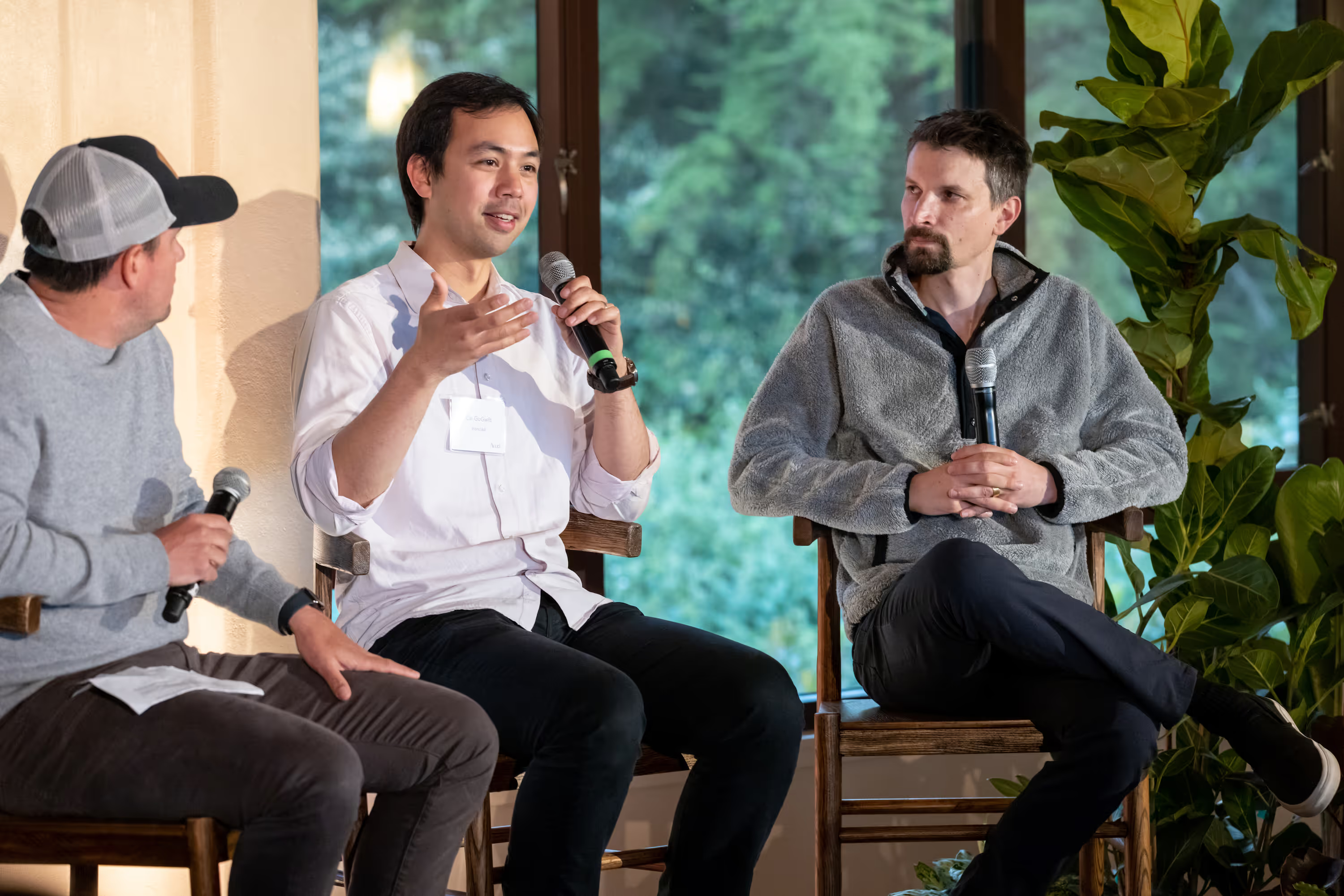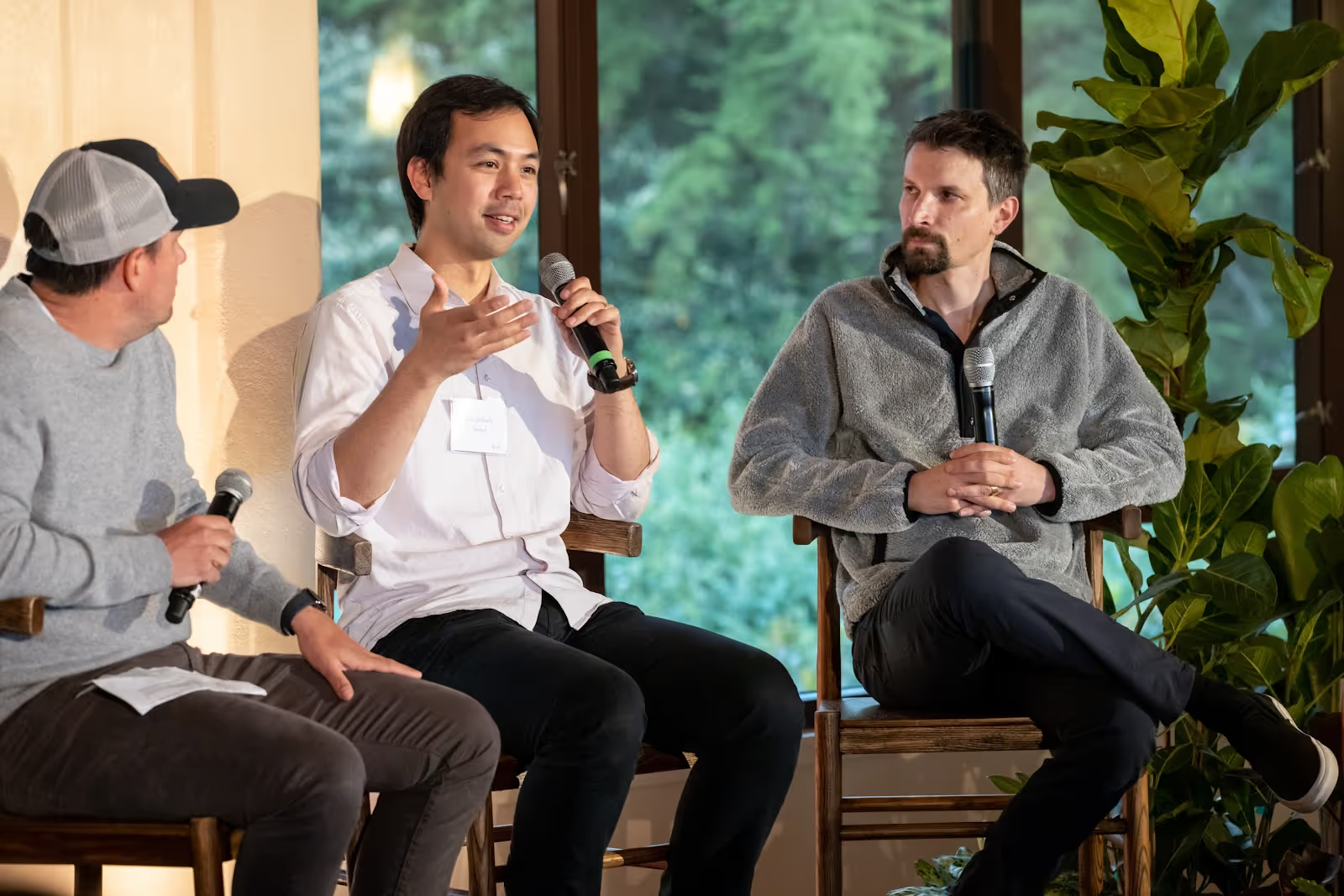Building for the Future: How Ironclad Prepared for Breakthroughs in Generative AI

In 2014, Cai GoGwilt and Jason Boehmig started building Ironclad. Cai was a software engineer and Jason was determined to solve the daily problems he encountered as a corporate attorney. Together they had an ambitious vision: become the system of record for all business information, and use contracts – powered by AI – to do it.
But this was nearly a decade ago and the technology of the time wasn’t advanced enough to power the “AI Legal Assistant” of their dreams. So they made a decision to back away from calling themselves an AI platform, even when competitors were leaning into the terminology – knowing that the capabilities of AI at the time just weren’t there. They quietly laid the groundwork for Ironclad, certain that a major player would eventually develop AI technology that would help them unlock their vision for the product. That breakthrough happened in 2022, and seemingly overnight. They had been building towards this moment for eight years.
“I remember looking at GPT with this existential feeling… thinking, this is going to change everything.” – Cai GoGwilt
Many tech startups, like Ironclad, have been thinking about the impending impact of AI for years. But Ironclad has been uniquely successful at preparing for, and now capitalizing on AI’s proliferation. At a recent Accel Founder Community event, their team answered questions on how to embrace the generative AI application landscape, and prepare for future growth breakthroughs. Here are their insights:
How did you prepare your product for this generative AI moment?
Cai GoGwilt: “We believed today’s kind of AI would get here eventually. But we were cautious. We refused to fake it ‘till we made it. We focused on laying the groundwork. We made investments in system engagement, to become the place where people do their work and make decisions. We knew eventually AI could give even more insights, accelerate experts, and become a force multiplier for users.”
Jason Boehmig: “Exactly. We knew that how our market has been functioning for the last 30 years would change. We focused on building cutting edge search interfaces and filters – which laid the groundwork for AI to begin parsing, indexing, and surfacing this natural language within contracts. It's a scary change, but it dramatically expands the use cases available to our customers.”
What do you think about resource allocation now, for AI efforts?
Jason Boehmig: “We have had resources allocated to AI for a long time. We started slowly, building that function, laying the groundwork, and behaving in a way that would eventually be useful. When the moment came last year, we went all in. But critically, we had a core nucleus of AI team members even before the wave hit.”
How do you run new generative AI relative to your legacy products?
Cai GoGwilt: “We haven't taken a burn-the-boats approach to our legacy product now that AI is here. But we have been anticipating this shift for years and building our legacy product for it. Ultimately We’re not thinking about it as a legacy product versus a new one. It's all Ironclad.”
Are you worried about competition in the generative AI application landscape?
Cai GoGwilt: “Major technological disruptions don’t just result in a marketing wave that you miss or hit. So it’s never too late to get on board or catch up. Just don’t stick your head in the sand.”
“You need to invest in this the way you invest in long-term technological disruptions, which is to play the long game. But that’s not to say don’t work quickly. We’re focused on changing the way our customers work and making that AI legal assistant now. If we don’t, someone else will.”
With these AI developments, how are you thinking about the future of Ironclad?
Cai GoGwilt: “There is still a long way to go. Every single week we’re discovering something new we can do with this technology. It completely changes the game on how we develop and expand. The things that aren’t changing are the human problems. That is our foundation. That’s our framework: our key factors are the problems people have and solving those.”
Jason Boehmig: “ We started the company with the ambition to make lawyers 10x more efficient. We’re at 10x now. This number will become even more dramatic with AI. We’re just beginning to think through the implications of that, and that’s really the fun stuff.”

Accel has been an enduring partner to Ironclad since 2017. Learn more about Ironclad on their website and see their core AI principles here.
Great companies aren't built alone.
Subscribe for tools, learnings, and updates from the Accel community.

